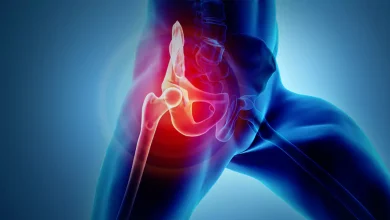All about Appendicitis

What is Appendicitis?
Appendicitis causes infection or inflammation in the appendix which is a small organ that is tube sized and it’s attached to the large intestine. When appendicitis happens, you will experience mild to severe pain in the lower right abdomen part of your body where the appendix is located. If the appendix gets ruptured it might spread bacteria through the abdominal cavity, and the pain will be severe and sometimes even life-threatening.
What are the Types of Appendicitis?
There are two types of appendicitis based on the onset and severity, including:
Acute Appendicitis: This type of appendicitis develops quite rapidly and some hours to some days which causes pain in the lower abdominal part of your body. It needs immediate treatment or surgery where the appendix is removed. There are no long-term complications of this type.
Chronic Appendicitis: In chronic appendicitis, the inflammation remains for a long period but it’s rare as compared to acute appendicitis. It can have complications such as a ruptured appendix or abscess.
What are the Symptoms of Appendicitis?
The symptoms of appendicitis include:
- Mild to severe pains on the right side of your lower abdomen.
- Swollen belly
- Vomiting along with nausea
- Constipation
- Difficulty to pass gas
- Loss of appetite
- Diarrhea
- Fever that may worsen as appendicitis progresses
- Bloating in the abdominal area
- Cramps
- Difficulty in urinating
What are the Causes of Appendicitis?
The exact cause of appendicitis is not clear but it develops when the appendix gets blocked mostly by stool. Infection or cancer. Some common causes of appendicitis might be
- Injury or trauma in the abdomen
- The area where the appendix connects to the intestines gets blocked.
- Infection in the digestive tract
- Inflammatory bowel disease.
- Abnormal growth within the appendix

What are the Risk Factors of Appendicitis?
Anyone can get appendicitis but some risk factors might increase the chances of getting appendicitis such as:
Age: People in their teens and 20s are mostly affected by appendicitis but it can happen to anyone irrespective of age.
Family History: If there is someone in your family who has appendicitis then your risk of developing it also increases.
Sex:It has been noticed that appendicitis is more common in males as compared to females.
What are the Complications of Appendicitis?
The main complications of appendicitis include:
Ruptured appendix: If your appendicitis gets ruptured (burs open) then the infection will spread all over your abdomen which can be life-threatening also. In such a case, immediate surgery is needed to remove the appendix and clean the abdominal cavity.
Pus formation in the abdomen: If your appendix is burst then you may get an infection (abscess) which forms pus in the abdomen. (abscess). In most cases, a surgeon drains the abscess by placing a tube through your abdominal wall into the abscess. Antibiotics are given to clear the infection and then surgery is carried out to remove the appendix. In a few cases, the abscess is taken out, and the appendix is immediately removed.
How Appendicitis is Diagnosed?
A doctor will first go through the signs and symptoms and examine your abdomen to check for appendicitis. The tests to diagnose appendicitis include:
Physical exam: In this procedure, a doctor will gently put pressure on the painful area and when the pressure is released suddenly, you may feel that the pain is worsened which is a sign that the adjoining peritoneum is inflamed. The doctor also examines abdominal rigidity by checking your reaction to pressure over the inflamed appendix (guarding). Another way to diagnose appendicitis is that your doctor will put on a lubricated, gloved finger to check your lower rectum.
Blood test: A sample of your blood is taken to detect your high white blood cell count, which may be a sign of an infection.
Urine test: A urine test is done to assure that the pain is not because of a urinary tract infection,
Imaging Tests: X-ray, an abdominal ultrasound, CT (computerized tomography) scan, MRI (magnetic resonance imaging), or ultrasound are used sometimes to confirm appendicitis or that there is some other reason for your pain.
What are the Treatment Options Available for Appendicitis?
- Medications and antibiotics are given to ease the pain or for infections but appendicitis can be treated only with surgery known as appendectomy where your appendix will be removed.
- If your appendicitis is ruptured and the formation of an abscess occurs then it will be drained out using a tube into the abscess through the skin. After some weeks surgery (appendectomy) is performed to remove the appendix.
- Before the surgery intravenous (IV) antibiotics are given to fight any kind of infection. Appendectomy is carried out as open surgery where an abdominal incision about 2 to 4 inches (5 to 10 centimeters) long (laparotomy) is used.
- Another kind of surgery known as laparoscopic surgery is also performed which can be done using some small abdominal incisions. During the surgery, the surgeon will insert special surgical tools and a video camera into your abdomen and then remove the appendix.
- Usually, laparoscopic surgery permits you to recover fast with less pain and rapidly but it is not appropriate for everyone and it’s performed mostly with older or obese people. In case of a ruptured appendix, appendectomy is carried out which permits your surgeon to drain out and clean the abdominal cavity. You have to take rest for a few days to recover completely.
Living with Appendicitis
Appendicitis causes pain in the right side of the abdominal area where the appendix is located. You may find it difficult to lead a normal life and do your daily chores because of the pain which may affect both your personal and professional life. With proper treatment, appendicitis can be quite serious and in the case of a ruptured appendix, it can be life-threatening. When your appendicitis is diagnosed, consult your doctor immediately and follow the treatment which mostly involves surgery to remove appendicitis.
Whom to Consult?
If you notice signs and symptoms of appendicitis then immediately consult and get yourself diagnosed if it’s appendicitis or some other disease that is causing the pain. Mostly surgery is done to remove the appendix and cure appendicitis but in some cases, it goes way with antibiotics also but in such instances, there are chances of appendicitis coming back.





